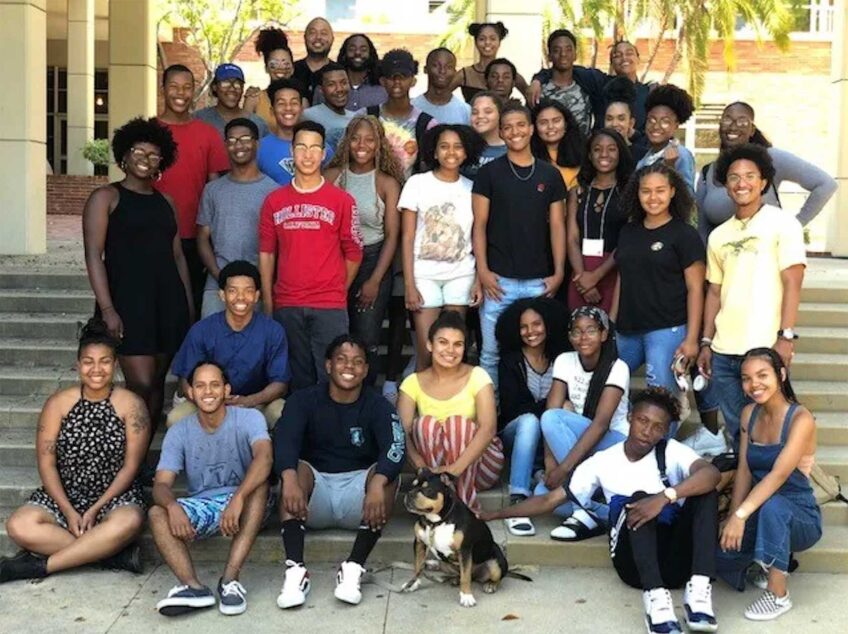As we appreciate and celebrate Black History Month in February, there’s one story we should pay close and careful attention to: The Black Panther Party. The legacies of the Panthers and the Black Power Movement still echo nearly 50 years later.
When people talk about Black History Month today, the real history often gets neglected. Martin Luther King Jr.’s opposition to the Vietnam War is ignored by politicians who invoke his legacy — right before they order bombings of other countries. Affirmative action, the war on poverty and other Great Society programs are removed from the history of regular people. These reforms weren’t the result of “benevolent” politicians. They were the products of the millions of black, brown and white people who protested and even revolted in cities across the country as part of the Black Power movement and other social movements in the 1960s.
The Black Panther Party was instrumental in helping to build a movement to challenge oppression and inequality directly. Continued racism in the North and victories against Jim Crow in the South initially spurred northern Blacks into action. However, the Black Panther Party developed a layer of black revolutionary activists who were vital in leading many of these struggles to victory. For example, Panthers and other black revolutionaries led a successful four-month student strike at San Francisco State College for a Black Studies program that united large numbers of black and white students alike.
Aaron Dixon is one person with a close understanding of this history. Dixon, the founder of the Seattle chapter of the Black Panther Party, has spent years of his life fighting for Black liberation and social justice. In his recent memoir, My People Are Rising, Dixon charts his experience building and leading the first Panther chapter outside of Oakland.
Beyond just a hidden history, Aaron Dixon’s story provides a wealth of lessons for people seeking to challenge racism and inequality today. It is inspiring as it is informative, showing how poor and oppressed people can organize to fight back. Community members will have a unique opportunity to hear this firsthand account at an upcoming forum on March 7.
As a Black Panther captain from the age of 19, Dixon led his chapter in challenging police brutality, stopping evictions of poor and working-class Black people, and operating a number of community aid programs. Through their work, the Black Panthers and Dixon were seen as respected leaders in Seattle’s black community during the late 1960s. Along with Panthers across the country, they served as an inspiration to millions of people seeking an end to war, oppression and inequality.
However, far from just glorifying his experiences, Dixon also takes an honest look at the challenges the Black Panthers faced inside and outside the Party.
The Black Panthers were formed at the height of the Black Power movement, rather than in the years leading up to it. As a result, many members were new to revolutionary politics and struggling to apply them in practice for the first time. His honest assessment gives us the chance to learn and build off these lessons for today’s world.
Today’s society is still plagued by racism. Just as slavery gave way to Jim Crow in the South and racism in the North, overt racism has given way to the color-blind rhetoric that masks continued racial inequality today.
For the Panthers, racism was not limited to people’s ideas but was a structure that held down black and brown people. While politicians today (as they did then) blame the oppressed and dispossessed, the Black Panthers saw poverty, violence and racism as a result of an inherently unequal system.
Those who are interested in applying the lessons of the Panthers for challenging racism today should seize this upcoming opportunity to hear Dixon speak. Far from just history, the stories of Aaron Dixon and the Black Panther Party are all the more relevant today.
Aaron Dixon will speak on Thursday, March 7 at 3:30 p.m. at UMass Boston and 7 p.m. at Codman Square Health Center (637 Washington St., Dorchester). Chris Morrill is a student at UMass Boston majoring in American Studies.






